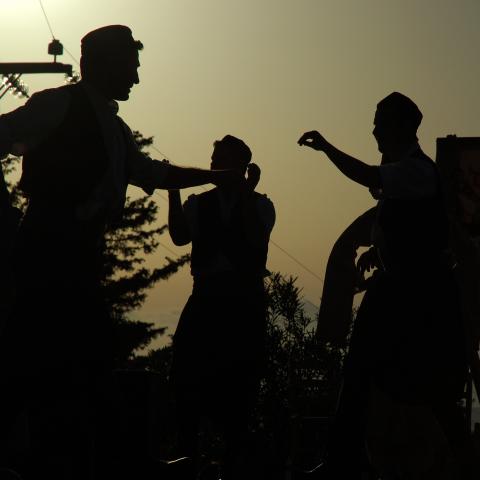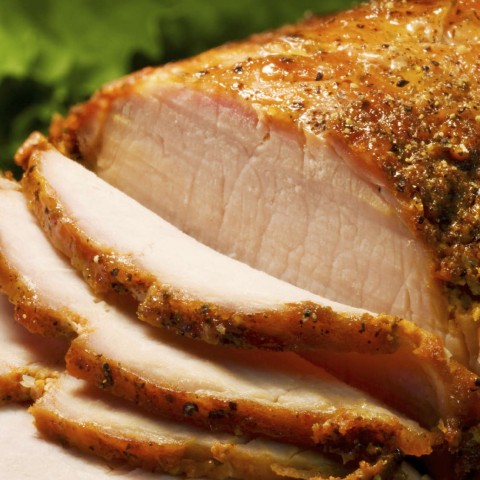Fat Thursday is one of many Greek holidays where heavy feasting takes place. This religious Greece holiday, also called Tsiknopempti, is important for you to get to know so that you can better understand Greek culture.
Here at GreekPod101.com, it’s our goal to help you delve deep into the Greek culture and language, both efficiently and in a fun manner. So, let’s go ahead and start learning about what Fat Thursday in Greece really looks like.
1. What is Fat Thursday in Greece?
Fat Thursday, or Τσικνοπέμπτη (Tsiknopémpti), is traditionally a day where grilled meat is consumed in large quantities. If you find yourself in Greece on Fat Thursday, you won’t be able to mistake what day it is, because the smell of burning fat being roasted on grills is everywhere! The event is celebrated 59 days before Easter, or Πάσχα.
Essentially, Fat Thursday is a “last chance” of celebration and rowdiness before Easter. This is because the Lent holiday is nearby, which is a time of fasting and abstinence from all those things which will be enjoyed on Fat Thursday.
2. When is it?

The date of Fat Thursday varies each year, as it depends on the date of Lent and of Easter. This Greek holiday takes place the Thursday before Lent. For your convenience, here’s a list of this holiday’s date for the next ten years:
- 2019: February 28
- 2020: February 20
- 2021: February 11
- 2022: February 24
- 2023: February 16
- 2024: February 8
- 2025: February 27
- 2026: February 12
- 2027: February 4
- 2028: February 17
3. How is it Celebrated?

The origin of Fat Thursday is not verified, but it’s thought that it comes from the Dionysian and bacchanal festivals of the ancient Greeks and Romans. This is why many special events are often accompanied by mocking songs, teasing, speaking in a vulgar manner, and sexual innuendo.
1- Food: Greek Meat Dishes
In many regions, pigs, or χοίροι, are slaughtered, while outdoor grills are set up everywhere from early in the morning, continuously churning out exquisite tidbits, or Μεζές (mezés), and traditional skewered meat.
There is plenty of meat eating, or Κρεοφαγία (kreofayía), and wine drinking, or Οινοποσία (inoposía), on this day, as it’s the last chance for rowdiness and meat consumption before Lent, or Σαρακοστή, the period of fasting. After Fat Thursday, the next opportunity for partying doesn’t occur until Easter, a whole 59 days later, which is why Greeks put so much effort into making it an enjoyable event.
Meats eaten on this day are cooked over charcoals, or κάρβουνα (kárvuno), which strongly emit the smell of burning fat, hence the name “Fat Thursday.”
2- Reading Practice: Marriage
Read the Greek text below to find out about this fun custom (you can find the English translation below it).
—–
Η έννοια του γάμου συναντάται σε πολλά έθιμα, όπως αυτό της «Κουλουρούς» στην Πάτρα. Η Γιαννούλα η κουλουρού ντύνεται νύφη και πηγαίνει στο λιμάνι να προϋπαντήσει τον Αμερικανό πρόεδρο Ουίλσον πιστεύοντας, λανθασμένα, πως την αγαπά και θέλει να την παντρευτεί. Ο κόσμος που τη συνοδεύει διασκεδάζει με τα καμώματά της. Στη Θήβα επίσης, την Τσικνοπέμπτη αρχίζει ο περίφημος «βλάχικος γάμος» που βασίζεται στο προξενιό δύο νέων, και ολοκληρώνεται την Καθαρά Δευτέρα. Τέλος στις Σέρρες ανάβονται μεγάλες φωτιές. Αφού ψήσουν το κρέας, οι άνθρωποι πηδούν από πάνω τους.
—–
The concept of marriage is found in many traditions, such as that of the Koulourou (bagel saleslady) in Patras. Giannoula, who sells bagels, dresses up as a bride and goes to the harbor to meet and welcome the American president Wilson believing, mistakenly, that he loves her and wants to marry her. The people that accompany her are being entertained with her behavior. In Thebes also, on Fat Thursday the famous Vlach wedding begins, which is based on the matchmaking of two young people, and ends on Clean Monday. Finally, in Serres, large fires are being lit. After they roast the meat, people jump over them.
The incident of Giannoula, the bagel saleslady, did happen before the second World War. Since the prank that was played on this naive woman caused so much laughter, the show was repeated for several years, so it ended up becoming a custom.
4. Additional Information
Why do Greek people eat meat on Thursday, as you see in the name Fat Thursday, as opposed to other weekdays?
For the Orthodox Church, or Ορθόδοξη Εκκλησία, the fasts of Wednesday and Friday are important. Because Thursday lies between these two days, it is considered the most suitable day for revelry.
5. Must-know Vocab

In order to celebrate Fat Thursday in Greece, you’re going to need to know some basic vocabulary for this holiday:
- Χοιρινό (hirinó) — “pork”
- Κρέας (kréas) — “meat”
- Μουσική (musikí) — “music”
- Σουβλάκι (suvláki) — “souvlaki”
- Τριώδιο (Triódio) — “Triodion”
- Απόκριες (apókries) — “carnival”
- Λίπος (lípos) — “fat”
- Κρεοφαγία (kreofayía) — “meat eating”
- Οινοποσία (inoposía) — “wine drinking”
- Τσίκνα (tsíkna) — “smell of burning food”
- Υπαίθριος (ipéthrios) — “outdoor”
- Ψησταριά (psistariá) — “grill”
- τρικούβερτο γλέντι (trikúverto gléndi) — “high jinks”
- Μεζές (mezés) — “tidbit”
- Κάρβουνο (kárvuno) — “charcoal”
- Τσικνοπέμπτη (Tsiknopémpti) — “Fat Thursday”
To hear the pronunciation of each word, visit our Greek Fat Thursday vocabulary list. Here, you’ll find an audio of each pronunciation alongside the word.
Conclusion
Now you know more about how Greeks celebrate Fat Thursday. What do you think about this holiday? Does your country celebrate Fat Thursday or a similar holiday? Let us know in the comments!
To learn more about Greek culture and the language, visit us at GreekPod101.com. We offer an array of insightful blog posts, free vocabulary lists, and an online community where you can discuss lessons with fellow Greek students. You can even download our MyTeacher app for a one-on-one learning experience with your own personal Greek teacher.
We hope you enjoyed learning about Greek Fat Thursday with us! Stay tuned for more Greek holiday articles, and keep up the good work. You’ll be a master of the Greek language before you know it!










